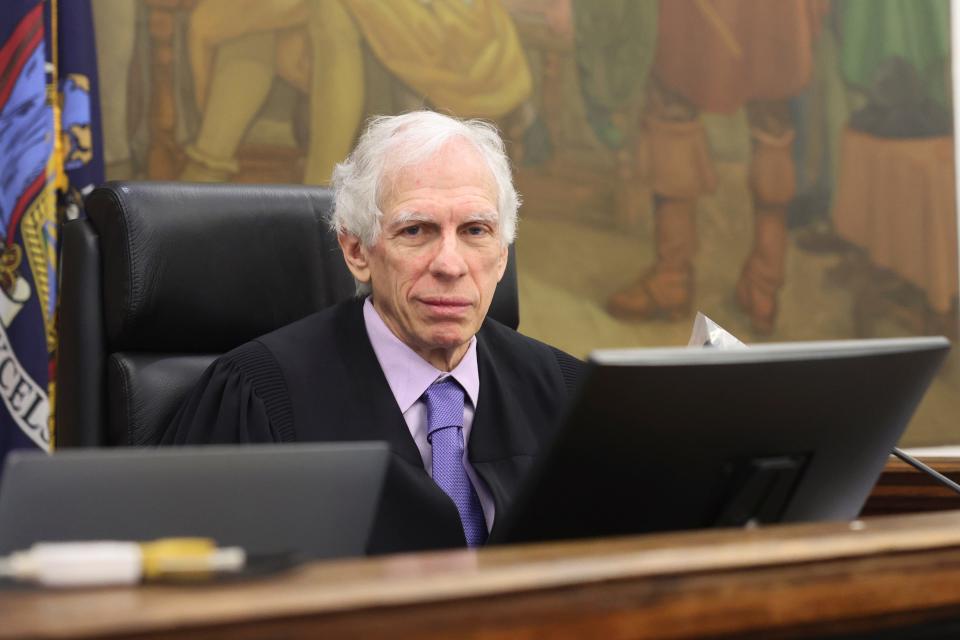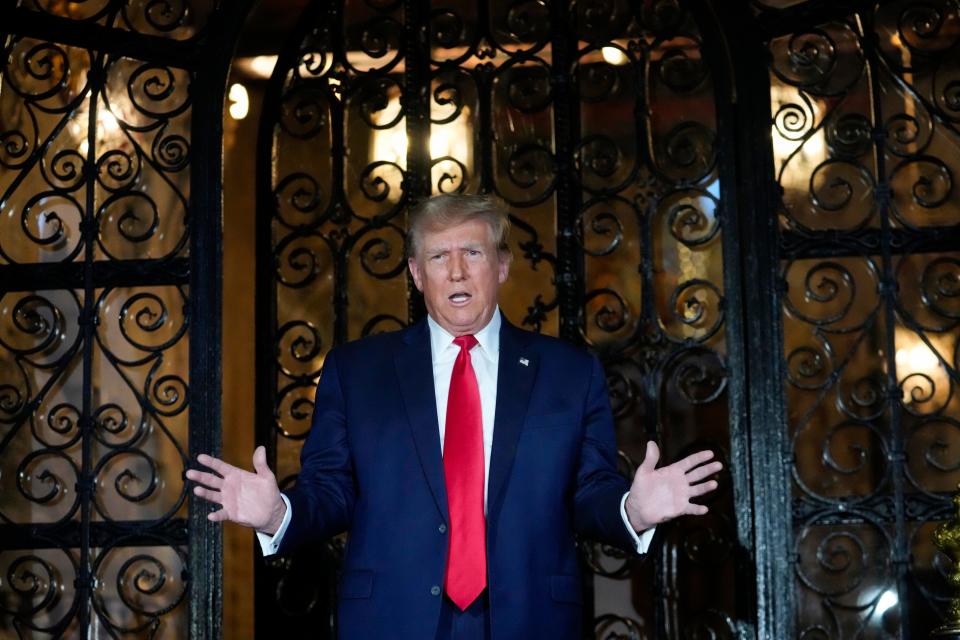In a blistering 92-page opinion, New York Supreme Court Justice Arthur Engoron delivered an impressive tutorial to former President Donald Trump and other developers on how real estate should be evaluated in obtaining bank loans and insurance policies.It’s an expensive lesson that will ultimately cost Trump many millions and will deprive him of future development and construction opportunities.There has been speculation in the news media that Trump will have either to sell assets or file bankruptcy protection to pay $453.5 million in penalties and interest that Engoron imposed on Friday.
Yet, while the decision imposes a hefty set of sanctions, I do not think it will be fatal to either Trump’s finances or his business organization.

Trump has filed for bankruptcy protection before
Let’s look first at what this decision will cost Trump and his business partners. In addition to the financial penalties, the associated injunctions include business restraints on Trump and the other defendants.The earlier decision in the case, issued in September, was modified by the final judgment vacating the cancellation of business certificates and the forced sale of corporate assets. Consequently, while this is an enormously expensive lesson, it is not necessarily fatal because the defendants will not be divested of their valuable assets.
Trump has been on the edge of the cliff before. For example, Trump-owned companies operating in Atlantic City filed for Chapter 11 four times between 1991 and 2009. But none of them proved fatal to Trump’s real estate empire.


Trump has been masterful in converting his numerous litigation hurdles into opportunities for campaigning and fundraising. He portrays himself as the victim of malicious enemies rather than the perpetrator of fraudulent business activities. Most of his supporters do not believe he committed fraud.
To those of us who are not MAGA disciples, Engoron has presented a clear picture of Trump’s failure to follow good business practices, with the assistance of two of his sons, corporate officers and other enablers.
How will Trump pay his fraud penalties? Your campaign donations, of course!
Engoron offered this explanation regarding appraisals: “Yet another great red herring in this case has been that different appraisers can legitimately and in good faith appraise the same property at different amounts. True enough, as appraising is an art as well as a science. However, the science part cannot be fraudulent. When two appraisers rely on starkly different assumptions, that is not evidence of a different opinion, that is evidence of deceit.”
While the defendants obtained appraisals, they often ignored them, did not disclose them to accountants and arbitrarily decided what properties were worth. They valued several properties that had not been constructed as though they were built, and they attributed no cost to constructing them.They ignored deed restrictions that prohibited more profitable uses, such as Mar-a-Lago being a residence, which was prohibited, rather than a permitted social club, which was much less valuable.They claimed that two to three times more houses could be constructed than zoning permitted on other properties. In short, their exaggerations rose to the degree of outright fraud.
Trump or Biden? Americans aren’t worried about the other guy – we’re worried about either.
Trump may land a $4 billion payday
Trump, however, may again avoid disaster. CNN Business reported the day before Engoron released his decision that “Donald Trump just got the green light to return to Wall Street.”
The Securities and Exchange Commission approved a merger between Trump Media & Technology Group and Digital World Acquisition Corp., a blank-check company, which would allow the Trump media enterprise to be a publicly traded company.
Opinion alerts: Get columns from your favorite columnists + expert analysis on top issues, delivered straight to your device through the USA TODAY app. Don’t have the app? Download it for free from your app store.
A blank-check company is a “special purpose acquisition company” formed to raise funds via an initial public offering without identifying the precise use of the funds. It is publicly traded even though it does not have an established business plan or a designated potential merger opportunity.
Trump’s stake in this merger could be worth $4 billion. That is enough capital to pay all the civil liability claims in the cases that have been decided and the cases that are pending.
If Trump wins reelection, he’ll be able to shelve the federal criminal cases or even pardon himself. He also may be able to negotiate a plea deal in the Georgia case on trying to steal the 2020 election, avoiding prison and allowing him to continue as president.The $4 billion question is: Will Trump survive yet another crisis?
David H. Moskowitz, a retired Pennsylvania lawyer, is the author of “The Judge and the President: Stealing the 2020 Election.”
You can read diverse opinions from our Board of Contributors and other writers on the Opinion front page, on Twitter @usatodayopinion and in our daily Opinion newsletter.
This article originally appeared on USA TODAY: Can Trump avoid bankruptcy? How he may dodge financial disaster











